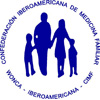Listening and empowerment: health promoters constructed from the cultural competence
Resumo
Introduction: The ability of the professional to relate to special characteristics of the population was called by Starfield (2002 ) cultural competence. This concept is strengthened by the Complexity Theory ( Plšek , 2001) and integrality ( Anderson , 2012): how the illness is experienced and explanatory models are elaborated is strongly influenced by culture and determines the quality of care.
Objective: To show a report in which the person-centered practice,coupled with the ability to consider the cultural dimension from the perspective of religion,contributed to understanding the experience of illness and construction of the common plan, bringing decisive impact on the process of care and personal autonomy.
Methodology or experience description: Case report,retrospective and qualitatively,followed in 4 consultations from August to October 2013. It is HCS, 77 year old female, carrier of hypertension,insulin-dependent DM2 , depression and family failure. She kept poor clinical control and was not taking the medication. We discussed her perceptions of care based on the person-centered method, the motivational interviewing skills and the appreciation of cultural and religious aspects as tools for redefinition of selfperception of health and development of therapeutic plan . HCS reports having lost a son with cardiopathy and now has a daughter with breast cancer and concludes : "I do not want to lose another son. I'd rather die first.".
Results: In reframing perspective,we discussed with HCS her perceptions of health,faith and transcendence (Freire,2008).She had been praying in the mornings and nights close to the image of Saint Mary for the healing of her daughter and for her health and we helped her to perceive the resources of medicine as blessings.The common plan was that she would leave their medications close to the image and would use it on the praying times.In return visits, HCS reported almost daily use of insulin and showed an improvement in fasting and postprandial blood glucose.However,the biggest highlight was the functional response: "I returned to live ".
Conclusions or Hypothesis: Despite the knowledge, the disease is not well understood beyond the biomedical aspects.There are several phenomenological features regarding subjectivity,faith and culture (Anderson,2001/Targa,2010).All of these aspects should be observed in the construction of the common plane (Stewart,2003) and impact on clinical status and self-perception of health.
Palavras-chave
Texto completo:
PDF (English)Apontamentos
- Não há apontamentos.
Este periódico é de responsabilidade das associações:
Apoio institucional:







